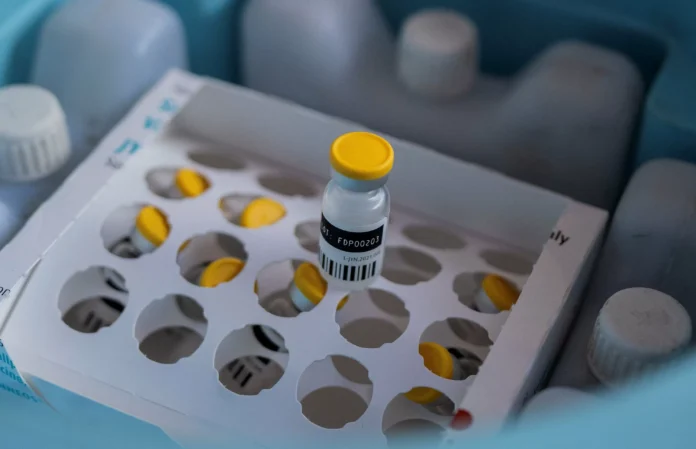As the Democratic Republic of Congo (DRC) launches a vaccination campaign to combat the recent flare-up of the potentially deadly virus mpox, the world watches with cautious optimism. With the help of international aid and medical expertise, the DRC is taking proactive measures to control and prevent the spread of this infectious disease. As we reflect on the developments and progress made in the fight against mpox, it is important to understand how this virus developed and what steps are being taken to eradicate it.
Mpox, also known as monkeypox, is a rare and contagious viral disease that was first identified in the Congo Basin in 1970. The virus is primarily transmitted to humans through contact with infected animals, usually wild rodents or primates, and can then spread from person to person through respiratory droplets or contact with infected bodily fluids. Symptoms of mpox include fever, rash, and enlarged lymph nodes, and in severe cases, it can lead to neurological complications and even death.
The recent increase in mpox cases in the DRC has raised concerns, especially as it comes at a time when the country is already facing multiple health crises. The ongoing Ebola epidemic in the eastern part of the country has left an already strained healthcare system struggling to cope. However, the DRC is not alone in this fight against mpox. In collaboration with the World Health Organization (WHO) and other international partners, the DRC has launched a vaccination campaign to protect its citizens from this virus.
The vaccination campaign, which began on October 2nd in the city of Mbandaka, is targeting over one million people in the affected areas. The vaccine, which has shown to be effective against mpox in clinical trials, will be given to high-risk populations, healthcare workers, and contacts of confirmed cases. This is a significant step towards containing the spread of the virus and preventing a larger outbreak.
Moreover, the DRC is also implementing other preventive measures, such as educating the public about the virus, improving surveillance and detection systems, and ensuring proper hygiene and sanitation practices. These efforts are crucial in containing the outbreak and minimizing the risk of further spread. The DRC’s proactive response to the mpox outbreak serves as a testament to the country’s commitment to protecting its citizens and the world at large from this virus.
The WHO has also commended the DRC’s swift action in responding to the outbreak, highlighting the importance of collaboration and coordination in tackling such health crises. The DRC’s health minister, Dr. Eteni Longodo, has expressed his gratitude for the international support and emphasized the country’s determination to overcome this challenge. The mpox vaccination campaign is just one of the many initiatives undertaken by the DRC to improve its healthcare system and protect its citizens from infectious diseases.
Beyond the efforts of the government and international organizations, the people of the DRC deserve recognition for their resilience in the face of health challenges. Despite the ongoing Ebola epidemic and other health crises, the country has remained determined to fight and overcome these obstacles. The success of the mpox vaccination campaign in the DRC will not only protect its citizens but also serve as a positive example for other countries facing similar challenges.
In conclusion, the recent mpox outbreak in the DRC has raised concerns, but the country’s swift response and determination to combat the virus are encouraging. The ongoing vaccination campaign, in collaboration with international organizations, is a significant step towards controlling and preventing the spread of the virus. The DRC’s efforts serve as a model for proactive and effective measures in tackling infectious diseases, and with continued support and cooperation, we can hope for a future where mpox and other deadly viruses are eradicated.


